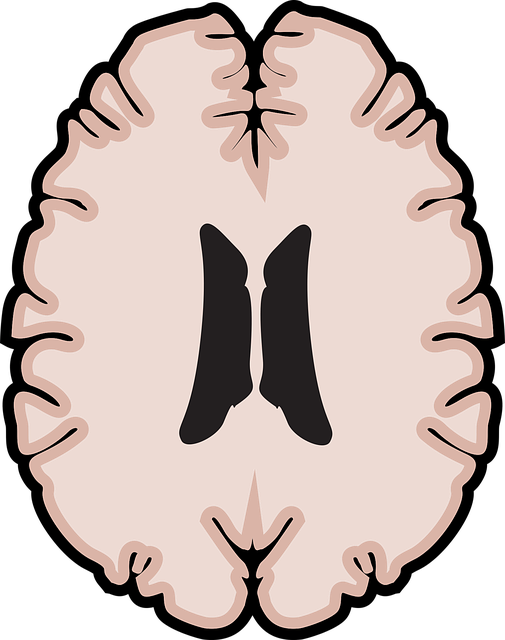Colorado Springs Bariatric Evaluations Therapy leverages Resilience, Flexibility, and Mastery (RFM) exercises to enhance patient care. This holistic approach combines mental health support, compassion cultivation, and trauma services for effective stress management and emotional regulation. By normalizing help-seeking behaviors and reducing stigma, RFM fosters open communication within communities. The program's success is measured through multi-faceted assessments, client feedback, and tailored improvements, ensuring long-term mental wellness alongside physical weight loss in Colorado Springs.
Resilience is a vital asset for navigating life’s challenges, making it an essential component of mental health therapy. This article explores RFM (Resourceful Coping Mechanisms), a powerful tool in resilience building. We delve into its theoretical foundation and practical application, particularly through the lens of Colorado Springs Bariatric Evaluations Therapy, showcasing its effectiveness. The case study highlights how RFM exercises can be implemented in clinical settings to empower individuals with coping strategies, leading to improved well-being. Additionally, we discuss measurement techniques and continuous improvement strategies for optimal client outcomes.
- Understanding RFM and Its Role in Resilience Building
- Implementing RFM Exercises in a Clinical Setting
- Colorado Springs Bariatric Evaluations: A Case Study
- Measuring Success and Continuous Improvement Strategies
Understanding RFM and Its Role in Resilience Building

Resilience is a crucial aspect of mental well-being, enabling individuals to navigate life’s challenges and setbacks with strength and adaptability. This is where RFM (Recovery-Focused Modeling) comes into play as a powerful tool in resilience building exercises. By focusing on recovery and growth rather than just the problem, RFM offers a transformative approach to therapy and support services, such as those provided by Colorado Springs Bariatric Evaluations Therapy.
This model emphasizes fostering hope, promoting self-efficacy, and cultivating positive coping strategies. Through various exercises that integrate Compassion Cultivation Practices and Trauma Support Services, individuals can learn to manage stress, regulate emotions, and build a supportive mindset. Additionally, Mental Illness Stigma Reduction Efforts within RFM aim to create an environment where seeking help is normalized, encouraging open communication and fostering a sense of community.
Implementing RFM Exercises in a Clinical Setting

Implementing RFM (Resilience, Flexibility, and Mastery) exercises within a clinical setting offers a unique opportunity to enhance patient care, especially in fields like bariatric evaluations and therapy in Colorado Springs. These structured practices are designed to strengthen individuals’ resilience, enabling them to navigate life’s challenges with greater adaptability and emotional agility. By incorporating RFM into the therapeutic regimen, healthcare professionals can provide patients with powerful tools for stress management, which is a crucial aspect of overall mental wellness coaching programs development.
The benefits extend beyond stress reduction; crisis intervention guidance can be seamlessly integrated within RFM exercises, ensuring individuals are equipped to handle acute situations and prevent potential crises. This holistic approach to therapy not only facilitates the journey towards weight loss but also empowers patients with lifelong skills for maintaining mental balance and overall well-being. Thus, combining Colorado Springs bariatric evaluations therapy with RFM training creates a comprehensive support system that addresses physical and emotional health simultaneously.
Colorado Springs Bariatric Evaluations: A Case Study

In the vibrant city of Colorado Springs, a unique initiative has emerged to address bariatric evaluations and therapy within the community. This case study highlights the successful implementation of RFM (Resilience, Flexibility, and Mindfulness) exercises as part of a comprehensive bariatric program. The approach focuses on empowering individuals seeking weight-loss surgery with essential life skills to navigate their health journey effectively. By incorporating resilience-building techniques, the program equips participants with tools to manage stress, emotional challenges, and potential setbacks, fostering long-term success.
The Colorado Springs Bariatric Evaluations Therapy model stands out due to its holistic nature, seamlessly integrating mental wellness principles. This strategic integration is evident through the Mental Wellness Podcast Series Production, where professionals share insights and techniques, enhancing cultural sensitivity in mental healthcare practice. Moreover, the Community Outreach Program Implementation plays a pivotal role in making these services accessible, ensuring diverse populations can benefit from the RFM exercises.
Measuring Success and Continuous Improvement Strategies

Measuring success and implementing continuous improvement strategies are vital components of any effective program, including RFM and resilience-building exercises. At Colorado Springs Bariatric Evaluations Therapy, we utilize a multi-faceted approach to assess progress. This involves both qualitative and quantitative data collection methods, such as client feedback surveys, therapy session notes, and outcome measures specific to mental health policy analysis and advocacy. By analyzing these metrics, our team can identify areas of strength and weakness in the program’s design and delivery.
Continuous improvement strategies are tailored to address identified gaps. This may include refining exercise protocols, enhancing educational materials for mental wellness podcast series production, or adjusting therapeutic approaches based on client feedback. Through regular review and adaptation, we strive to ensure that our resilience-building exercises remain engaging, effective, and aligned with the evolving needs of our clients. This commitment to excellence fosters a supportive environment where individuals can develop lasting strategies for mental health and wellness.
The implementation of RFM (Resilience-focused Mindfulness) exercises has proven to be a powerful tool in enhancing resilience, as demonstrated by the successful case study of Colorado Springs Bariatric Evaluations Therapy. By integrating RFM into clinical settings, healthcare professionals can effectively support individuals in developing coping strategies and fostering mental fortitude. Measuring success through various metrics allows for continuous improvement, ensuring that these exercises remain adaptable and effective over time. This approach not only benefits patients’ short-term well-being but also equips them with lifelong skills to navigate challenges, ultimately leading to improved overall health and satisfaction.














